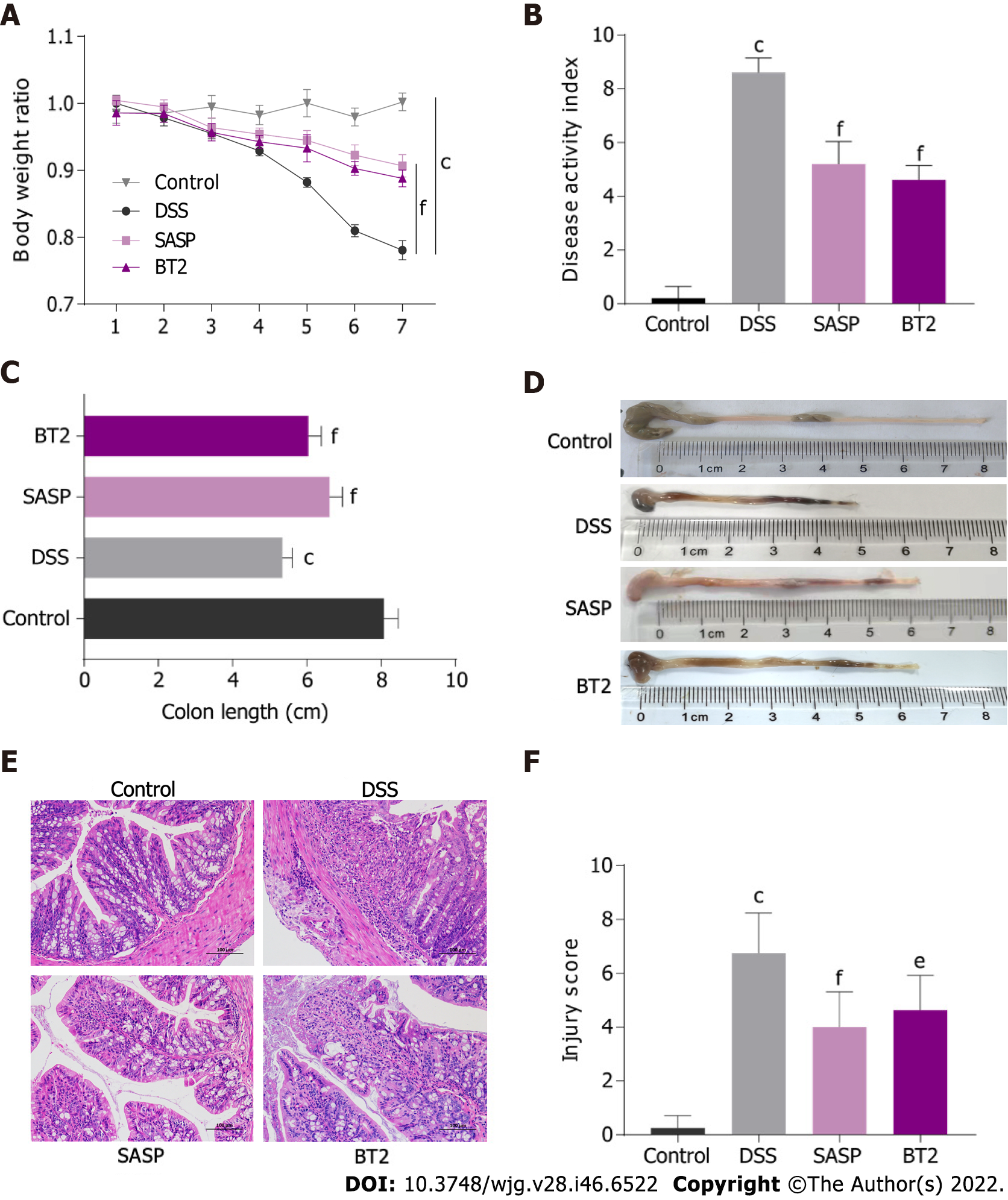Copyright
©The Author(s) 2022.
World J Gastroenterol. Dec 14, 2022; 28(46): 6522-6536
Published online Dec 14, 2022. doi: 10.3748/wjg.v28.i46.6522
Published online Dec 14, 2022. doi: 10.3748/wjg.v28.i46.6522
Figure 1 3,6-dichlorobenzo[b]thiophene-2-carboxylic acid improved colon inflammation in dextran sodium sulfate-treated mice.
A: Changes in the body weight of mice; B: Disease activity index of each group of mice on day 8 (n = 5); C: The colon length of each group of mice was measured; D: Macroscopic observation of colons; E: Representative hematoxylin and eosin staining images of colon sections (200 × magnification); F: Injury scores. eP < 0.01 and fP < 0.001 vs the dextran sodium sulfate group; cP < 0.001 vs the control group. The data are shown as the mean ± SD (n = 5-8). DSS: Dextran sodium sulfate; SASP: Salazosulfapyridine; BT2: 3,6-dichlorobenzo[b]thiophene-2-carboxylic acid.
- Citation: He QZ, Wei P, Zhang JZ, Liu TT, Shi KQ, Liu HH, Zhang JW, Liu SJ. 3,6-dichlorobenzo[b]thiophene-2-carboxylic acid alleviates ulcerative colitis by suppressing mammalian target of rapamycin complex 1 activation and regulating intestinal microbiota. World J Gastroenterol 2022; 28(46): 6522-6536
- URL: https://www.wjgnet.com/1007-9327/full/v28/i46/6522.htm
- DOI: https://dx.doi.org/10.3748/wjg.v28.i46.6522









